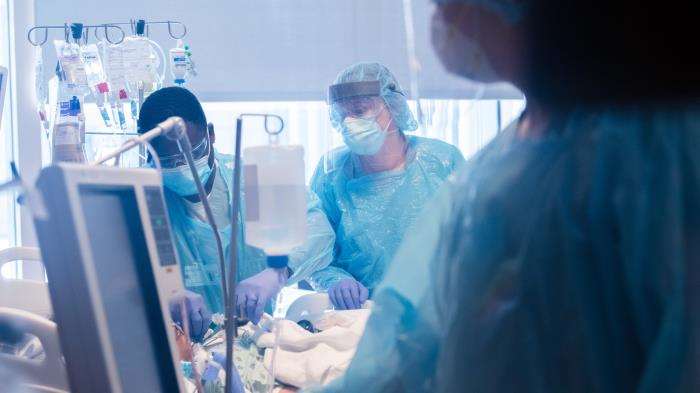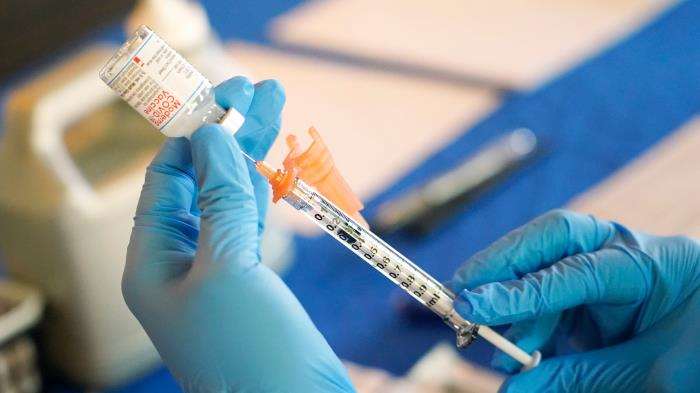Lung transplantation is a complex surgical procedure that involves replacing a diseased lung with a healthy lung from a donor. Vaccination plays a critical role in the overall health management of patients undergoing this procedure. Patients who receive a lung transplant are at increased risk for infections due to immunosuppressive therapy, making preventive measures, such as vaccinations, essential for their long-term health.
Medical disclaimer: This content is for general awareness and does not replace a doctor’s consultation. For diagnosis or treatment decisions, consult a qualified specialist.
Why Vaccination is Crucial Before Lung Transplant
Prior to undergoing a lung transplant, patients must be vaccinated to reduce the risk of infections that could complicate surgery and recovery. The immune system is often compromised, and certain vaccines can provide protection against viral and bacterial infections. Vaccination not only helps in minimizing the risk of post-operative complications but also contributes to a smoother recovery process.
Types of Vaccines Recommended Before Lung Transplant
Several vaccines are recommended for patients awaiting lung transplants. These include the influenza vaccine, pneumococcal vaccine, and hepatitis B vaccine. Each of these vaccines targets specific pathogens that can pose significant risks to immunocompromised individuals. It is essential for patients to discuss their vaccination history with their healthcare provider to ensure comprehensive protection.

Timing of Vaccination Before Lung Transplant
Vaccination should ideally occur several weeks to months prior to the lung transplant surgery. This timing allows the body to develop sufficient immunity against infections. Patients are encouraged to discuss their vaccination schedule with their transplant team to ensure that all necessary vaccines are administered in a timely manner, thereby enhancing their protection.
Importance of Vaccination After Lung Transplant
Post-lung transplant, patients remain at a heightened risk for infections due to ongoing immunosuppression. Vaccination is crucial in this phase to help bolster the immune response and protect against common infectious agents. Regular vaccination can significantly reduce the incidence of serious infections, contributing to better overall health outcomes and longevity.
Vaccination Schedule After Lung Transplant
The vaccination schedule after a lung transplant is tailored to the individual patient's needs and health status. Typically, patients should receive vaccines such as the influenza vaccine and pneumococcal vaccine annually. Consultation with the transplant team is essential to determine the appropriate timing for each vaccine, considering the patient's immunosuppressive therapy.
Common Vaccines Administered After Lung Transplant
Following a lung transplant, several vaccines are recommended, including the influenza vaccine, pneumococcal vaccine, and shingles vaccine. These vaccines help protect against infections that can lead to complications. The transplant team will guide patients on which vaccines are necessary and when they should be administered.
Potential Side Effects of Vaccination
While vaccinations are generally safe, patients may experience mild side effects such as soreness at the injection site, fever, or fatigue. Serious side effects are rare but can occur. It is important for patients to discuss potential side effects and report any unusual symptoms to their healthcare provider promptly, ensuring that they receive appropriate care.

Monitoring Immunity After Vaccination
Post-vaccination, it is important to monitor the patient’s immune response. This can be done through serological testing to check antibody levels against specific pathogens. Understanding a patient’s immunity helps healthcare providers make informed decisions regarding additional vaccinations or boosters that may be necessary to enhance protection.
Role of Healthcare Providers in Vaccination
Healthcare providers play a vital role in educating patients about the importance of vaccinations before and after lung transplantation. They should ensure that patients are aware of the recommended vaccination schedule, assess their vaccination history, and provide necessary vaccines in a timely manner. Continuous patient education is key to improving compliance and health outcomes.
Challenges in Vaccination for Lung Transplant Patients
Patients undergoing lung transplantation may face challenges in vaccination, including fear of side effects, misconceptions about vaccine efficacy, and logistical issues related to scheduling. Addressing these challenges is crucial for ensuring that patients receive the necessary vaccinations. Open communication between patients and healthcare providers can help alleviate concerns and encourage adherence to vaccination schedules.
Impact of Vaccination on Long-term Outcomes
Research indicates that appropriate vaccination before and after lung transplantation can significantly improve long-term outcomes. Patients who are adequately vaccinated experience fewer infections, reduced hospitalization rates, and improved overall survival. Vaccination is a critical component of post-transplant care that contributes to enhanced quality of life for lung transplant recipients.
Patient Education on Vaccination Importance
Educating patients about the importance of vaccination is essential for ensuring compliance. Patients should understand how vaccines work, the types of vaccines available, and the potential consequences of not being vaccinated. Providing clear and concise information can empower patients to take an active role in their health management, leading to better adherence to vaccination protocols.
Community Resources for Vaccination Support
Various community resources are available to support lung transplant patients in their vaccination journey. Local health departments, transplant centers, and patient advocacy groups often provide information about available vaccines, vaccination clinics, and financial assistance for those in need. Leveraging these resources can help ensure that patients receive timely vaccinations.
Global Vaccination Guidelines for Lung Transplant Patients
Globally, vaccination guidelines for lung transplant patients emphasize the need for comprehensive immunization strategies. Organizations such as the American Society of Transplantation and the European Society for Organ Transplantation provide evidence-based recommendations for vaccination. These guidelines help healthcare providers develop appropriate vaccination plans tailored to individual patient needs.
Case Studies Highlighting Vaccination Benefits
Numerous case studies have demonstrated the benefits of vaccination in lung transplant recipients. For instance, patients who received the pneumococcal vaccine prior to surgery showed a marked reduction in post-operative pneumonia rates. These findings underscore the importance of adhering to vaccination protocols to enhance patient outcomes and reduce healthcare costs associated with complications.
Research and Future Directions in Vaccination
Ongoing research is focused on improving vaccination strategies for lung transplant patients. Studies are exploring the efficacy of new vaccines and the optimal timing for administration. Future directions may include personalized vaccination approaches based on individual immune responses, which could further enhance protection against infections in this vulnerable population.
Understanding the Importance of Lung Function Tests After Transplant
Discover why lung function tests are essential for monitoring transplant health. This blog explains how these tests help detect potential issues early.
Conclusion: The Lifesaving Role of Vaccination
In conclusion, vaccination is a vital component of care for patients undergoing lung transplantation. Both pre- and post-operative vaccinations significantly reduce the risk of infections and improve long-term health outcomes. Patients and healthcare providers must work collaboratively to ensure that vaccination protocols are followed diligently, ultimately leading to better quality of life for lung transplant recipients.
Best Lung Transplant in India
The Best Lung Transplant in India offers a vital treatment option for patients with end-stage lung diseases, combining advanced surgical expertise with comprehensive post-transplant care.
Best Lung Transplant Hospitals in India
The Best Lung Transplant Hospitals in India are equipped with cutting-edge technology and experienced transplant teams, ensuring seamless care and improved outcomes for patients.
Lung Transplant Cost in India
The Lung Transplant Cost in India is structured to provide affordability while maintaining high standards of medical care and long-term support for patients.
Best Lung Transplant Surgeons in India
The Best Lung Transplant Surgeons in India are highly skilled in handling complex transplant cases, offering precise surgical interventions and personalized patient care for successful recoveries.
FAQs on Vaccination for Lung Transplant Patients
What vaccines are essential before a lung transplant?
Prior to a lung transplant, essential vaccines include the influenza vaccine, pneumococcal vaccine, and hepatitis B vaccine. These vaccines help protect against infections that can complicate the surgery.
How soon after a lung transplant can I get vaccinated?
Vaccination post-lung transplant typically begins around 3 to 6 months after surgery, depending on the patient’s recovery and immune status. It is crucial to follow the transplant team’s recommendations regarding the timing of vaccinations.
Are there any risks associated with vaccination after lung transplant?
While vaccines are generally safe, lung transplant patients may experience mild side effects. Serious adverse effects are rare, but it is important to discuss any concerns with your healthcare provider.
How can I ensure I am up to date on vaccinations?
To ensure you are up to date on vaccinations, maintain regular communication with your healthcare provider, keep a record of your vaccinations, and follow the recommended vaccination schedule provided by your transplant team.
Advanced imaging techniques, such as high-resolution computed tomography (HRCT), play a crucial role in the evaluation of lung transplant candidates and the monitoring of post-transplant complications. These imaging modalities help assess the extent of lung disease, identify contraindications to transplantation, and aid in surgical planning. Post-transplant, imaging is essential for early detection of complications like acute rejection, infections, chronic lung allograft dysfunction, and post-transplant lymphoproliferative disorder. The Role of Advanced Imaging in Lung Transplant Evaluation
Pre-transplant testing and evaluation are critical steps in ensuring the success of lung transplants. These evaluations help assess the patient's overall health, identify potential risks, and determine compatibility with potential donors. Comprehensive medical, psychological, and lifestyle assessments are conducted to ensure that candidates are physically and mentally prepared for the procedure. This thorough preparation helps optimize outcomes and reduce the risk of complications post-transplant. The Role of Pre-Transplant Tend Evaluation in Lung Transplant Success
Physical therapy plays a crucial role in the rehabilitation of lung transplant recipients. It helps patients regain strength, improve mobility, and enhance overall physical function. Physical therapists work with patients to develop personalized exercise programs, focusing on aerobic and resistance training to improve lung capacity and muscle strength. Additionally, physical therapy includes breathing exercises, coughing techniques, and mucociliary clearance to promote effective ventilation and prevent complications. Engaging in physical therapy can significantly improve the quality of life and long-term outcomes for lung transplant patients. The Role of Physical Therapy in Lung Transplant Rehabilitation